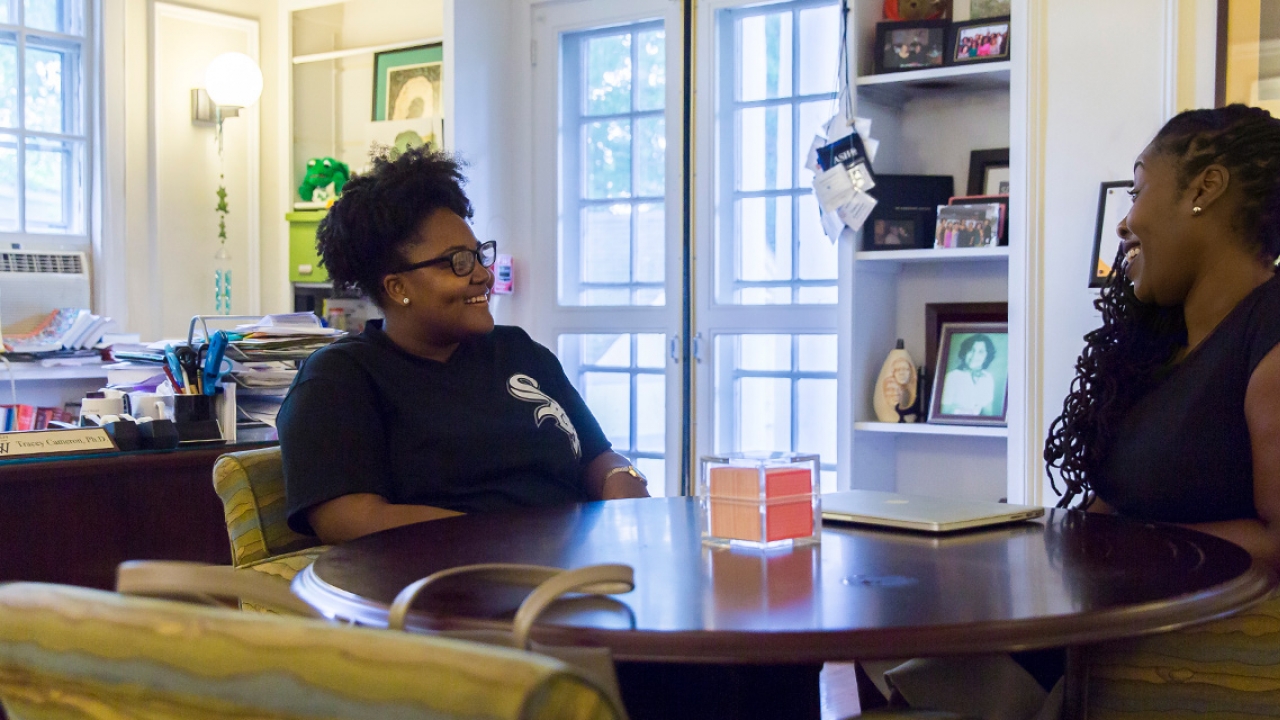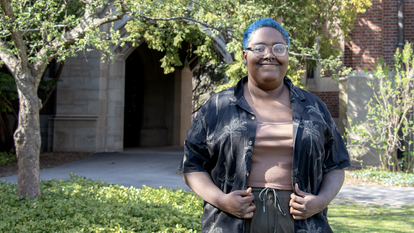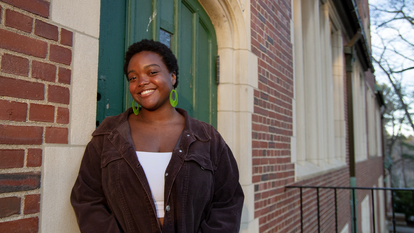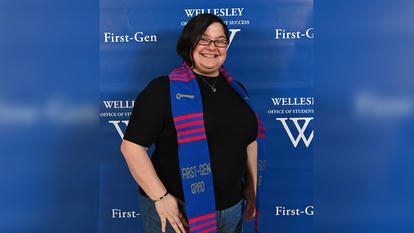Serenity Hughes ’18 Awarded Beinecke Scholarship for Graduate Study

When Serenity Hughes ’18 (pictured above, left) learned that she had been named a 2017 Beinecke Scholar—the first Wellesley student to receive a Beinecke Scholarship in 10 years—she immediately thought of the South Side of Chicago, where she was born and raised. “Chicago has helped shape me into the person I am now,” said Hughes, who will receive $34,000 in support of her graduate education. “I dedicate my award to the people of color who live on the South and West sides, because the Beinecke Scholarship provides me with a platform and voice that I will use to empower them.”
Hughes, who is a first-generation college student, has wanted to be a college professor since she was a little girl, she said: “I grew up a mile from the University of Chicago, so I was always immersed in academia.” Her dream was supported by the staff and university students who tutored and mentored her at the Sue Duncan Children’s Center, which nurtures the academic, athletic, and artistic growth of children on the city’s South Side. There, she received private violin lessons and was encouraged to write papers and present them to her peers, “which resulted in my love of giving presentations,” she said.
One of her mentors, a University of Chicago student who later earned a Ph.D. in philosophy, also encouraged her research interests in gender studies, American studies, and hip-hop, which she describes as both fun to listen to and a safe space in which artists of African descent can discuss the marginalization of people of color in America.
“As I explained in my Beinecke application essay, in the last decade, the Chicago Public Schools system has closed more than 60 schools located in predominatly Black neighborhoods, the Chicago Housing Authority has displaced thousands of Black families, and racial segregation in Chicago has congregated violence into a handful of neighborhoods,” said Hughes, an Africana Studies major and an education minor.
The South Side is marked by dilapidated buildings and abandoned schools, while just blocks away stand multimillion-dollar homes. Yet Hughes always recognized and appreciated the culture, beauty, and warmth of her community. For example, there were “the teenagers with their baggy jeans, white T-shirts, and medium-length dreadlocks footworking to music only a Chicagoan would recognize; the little boys with Black skin that glistened with sweat when in the sun, who drummed on buckets in order to raise money; the little Black girls with their colorful barrettes swinging in the air unapologetically, who danced to ‘D Low Shuffle’ and the ‘Jukeslide’; the Black faces huddled in Harold’s Chicken Shack every day of the week, waiting patiently for their order of four wings with extra mild sauce,” she wrote in the essay.
At Wellesley, Hughes has worked with several faculty members to develop her complex, multifaceted interests. “Professors Irene Mata, Soo Hong, Michael Jeffries, Selwyn Cudjoe, Noah Rubin, Ken Hawes, and Ophera Davis have pushed me to engage in the historical, literary, political, philosophical, and cultural disciplines related to my research. They challenge me to take my research to the next level, and their own work and research have been instrumental in everything I have done and want to achieve in the future,” Hughes said.
In 2016, she received a Mellon Mays Undergraduate Fellowship, which brought her one step closer to achieving her goals. The program aims to increase the number of underrepresented faculty at colleges and universities across the United States and to bring a wider array of perspectives and experiences to the academy. The award allowed her to conduct interviews with both rappers and fans of rap music, and to work with Tracey Cameron, assistant dean of intercultural education, director of Harambee House, and advisor for students of African descent (pictured above, right).
“Serenity is a promising scholar with an impeccable work ethic. Her research through the Mellon Mays Undergraduate Fellowship offers critical insights into drill music (rap) and its social, political, and economic implications,” said Cameron. “She is sophisticated in her thinking and does not shy away from asking difficult questions. There’s no doubt that Serenity will do well in her pursuit of graduate education and her journey to the higher education professoriate.”
Michael Jeffries, associate professor of American studies, echoes those remarks. “Serenity is a gifted student with every tool she needs to be successful at her next stop. But one of the most important reasons she will make a wonderful Beinecke Scholar is that she is courageous,” he said. “She has the courage to take on messy topics, to emphasize her deep personal investment in her research, and to accept constructive criticism when it comes. She is motivated by all the right things, and there is no limit to what she can accomplish.”
The kids in Hughes’ Chicago neighborhood continue to be her biggest motivation and are never far from her mind. “A career in the professoriate means that I will be able to teach future lawyers, poets, activists, investment bankers, and doctors how to think critically about systemic structures that contribute to Black and brown marginalization,” she said.
For information about the Beinecke Scholarship and other awards, visit the Wellesley Fellowship Office.



